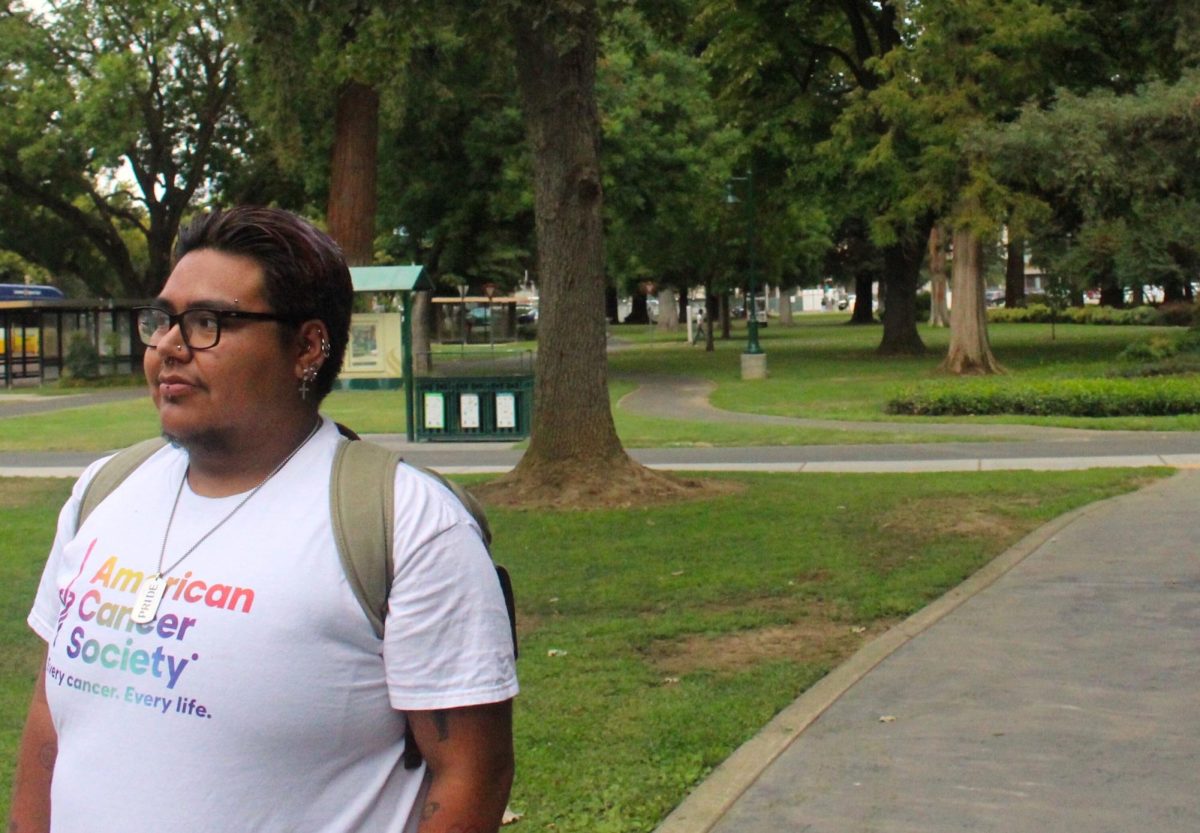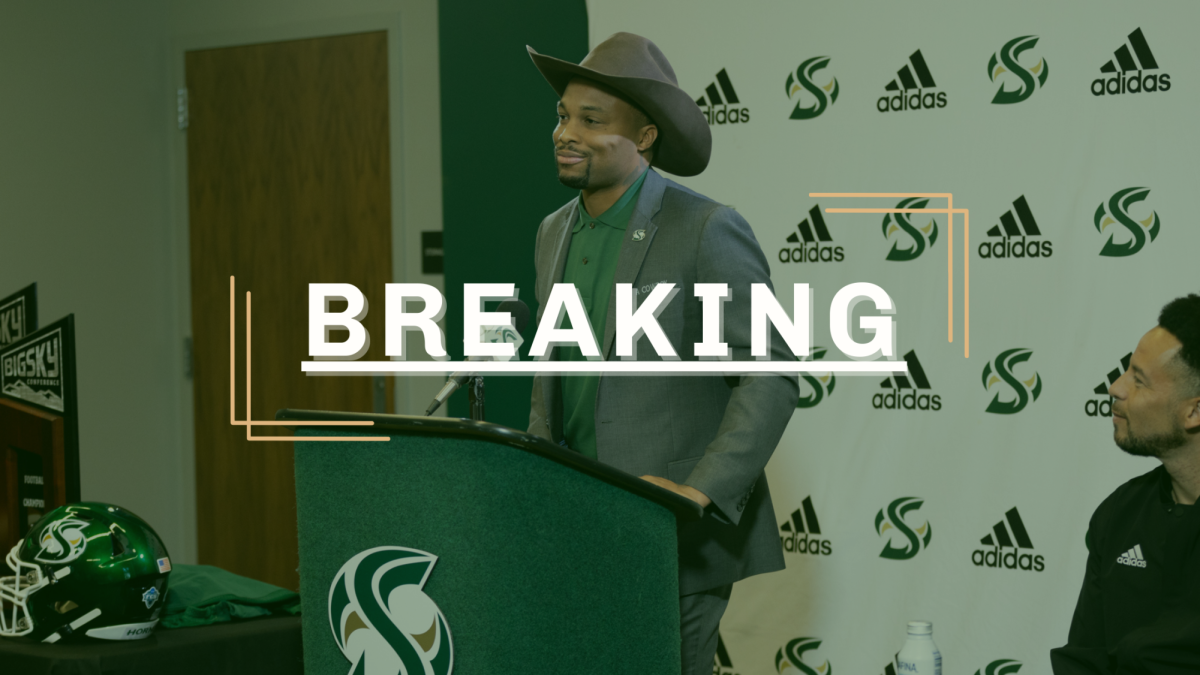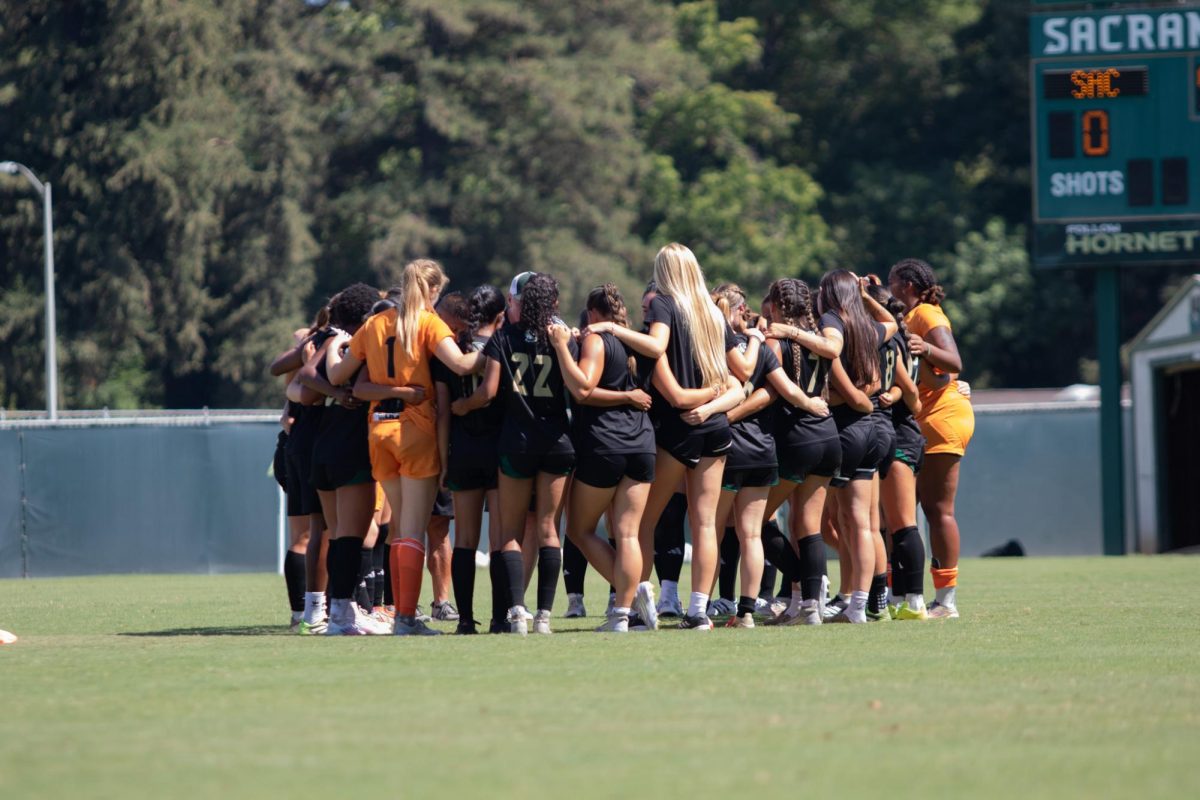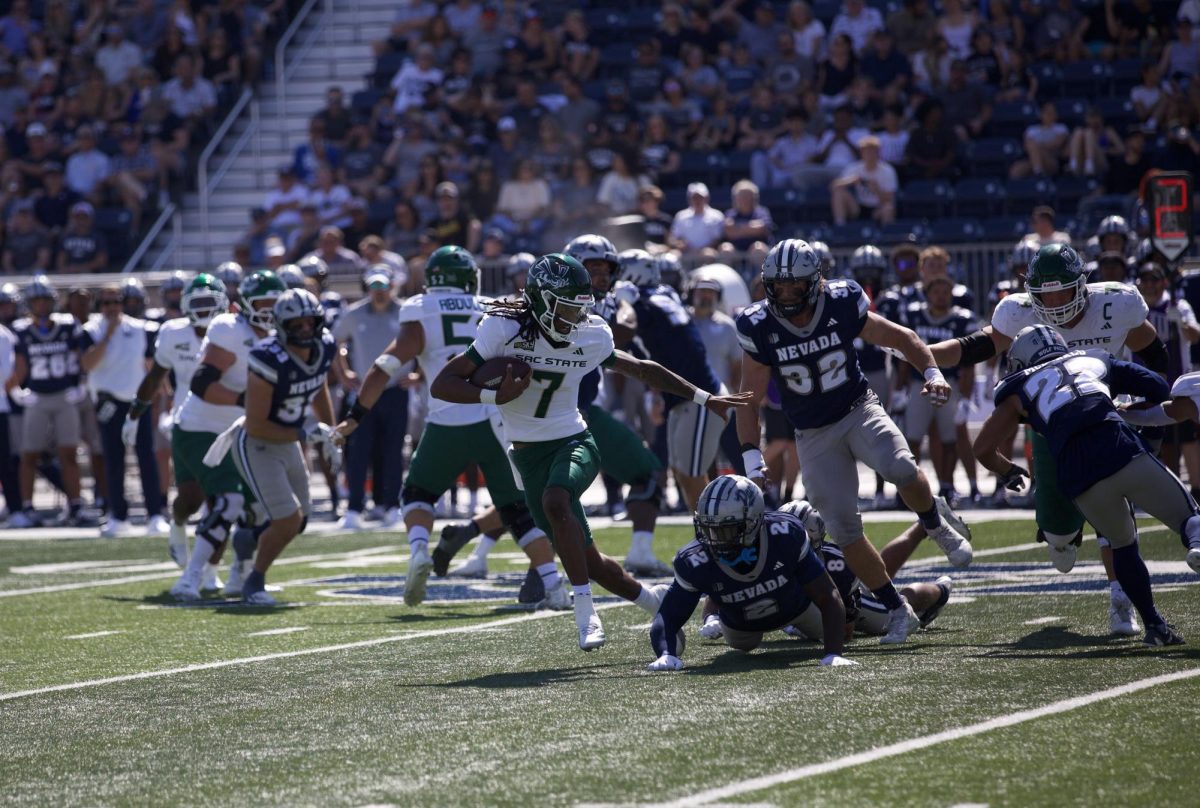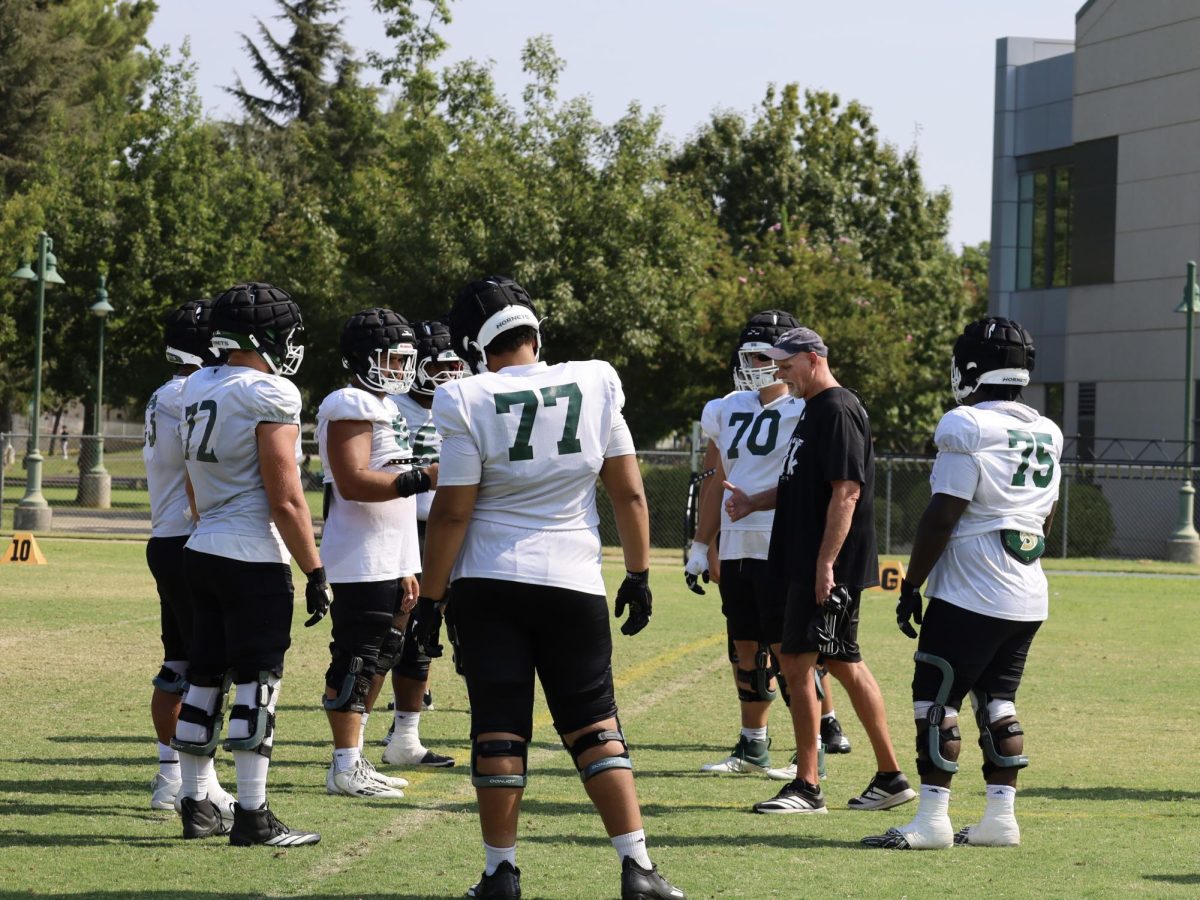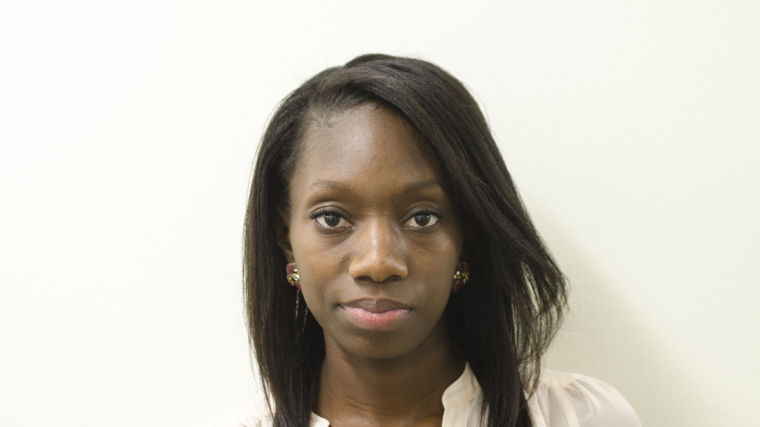Writers tackle the misconceptions of hair in the African-American Community
October 30, 2013
Hair is a defining characteristic for many women. For some it is a statement, while others do not put too much effort into it.
Now imagine being an African-American.
Ideal beauty standards characterize African-American hair as unattractive or unprofessional – not something that is idealized or valued in media – and straight hair is often pushed as a norm for African-American women.
In previous years, natural hair was not something that was as visible as it is now. In fact, it was seen as taboo.
“You would not wear your hair natural unless it was in style, but before then it wasn’t acceptable to just wash your hair and then go,” said Administrative Support Coordinator for the Ethnic Studies Department Anne Thomas.
According to T. Joel Wade and Sara Bielitz in their article, “The Differential Effect of Skin Color on Attractiveness, Personality Evaluations, and Perceived Life Success of African-Americans,” from “The Journal of Black Psychology,” the worthiness of African-Americans is based upon physical characteristics such as skin color or hair type.
Whichever style is preferred, straight or natural, there is the issue of someone feeling insecure if their hair is not done a certain way. For example, food and nutrition major Morgen Spires, 20, said she does not feel as pretty when her hair is not straightened.
This has occurred since slavery with the onset of ideal beauty standards influenced by white appearance. As a result of these standards, women with less “manageable” hair can sometimes feel less beautiful and pressured to make changes for what they think is “better” hair. This plays into the notion of having good hair versus having bad hair.
“We always refer to hair as good hair and I laugh about that,” Thomas said. “If hair is more (like) European hair, then it’s considered good hair; but if it isn’t, then it is bad hair – or kinky hair – or nappy hair.”
According to USA Today and Mintel, 36 percent of women have stopped buying hair relaxer kits as of 2011 and relaxer kits sales have decreased 17 percent since 2008; meaning more African-American women are repping the natural hair they were born with.
Women are beginning to flaunt their natural texture, whether they’re rocking a teeny weeny afro – known as a T.W.A. – or sporting curls as big as Diana Ross’.
”It’s kind of become more of a fashion thing now to have natural hair,” said Bianca Christian, 24-year-old psychology and history major.
In addition to natural texture, there are those who choose to wear a weave or extensions.
One of the biggest misconceptions about weaves is that people who wear them only do so because they are “bald-headed” underneath. For most women this is not the case, though – there are numerous reasons for wearing weaves.
Moriah Rene, senior organizational communications major, 22, said weaves help her save time with her busy schedule, and wearing a weave makes it easier for her to get up and go in the morning.
One other common style throughout the African-American community is straight hair. Most women achieve long-term straight hair with chemical relaxers but, recently, many women have stopped using relaxers because many chemicals in the substances are harsh.
According to beautysupply.about.com, relaxers work by combining strong chemicals, such as Sodium Hydroxide and Guanidine Hydroxide, to break – and straighten – the disulfide bonds in hair that make it curly or kinky. The bonds that relaxers break are the bonds that give strength to the hair which, depending on the person getting treatment, could result in anything from hair-loss and irritation to dryness and burns.
Some African-American women are completely against chemical relaxers while others have found methods, such as using less chemical treatment, that allow them to grow out healthier hair with less repercussions.
Others are using a technique called “texlaxing,” which combines the use of chemical relaxers in small doses, conditioner or oil, and shorter setting times. Doing this allows the hair to keep more of its natural texture without being straightened completely.
Wade and Bielitz go on to explain in their article that individuals learn that certain physical characteristics evoke and become valued in society which directly affects how they judge others and themselves.
Some women choose to go natural in order to conquer feelings of inadequacy and learn about their insecurities in the process.
“I love my hair. I’m learning and growing with it and I’m learning more about myself and that’s the most important thing,” said Danielle Brown, senior sociology major, 22.
Briana Swain can be reached at [email protected]
Anisca Miles can be reached at [email protected]




